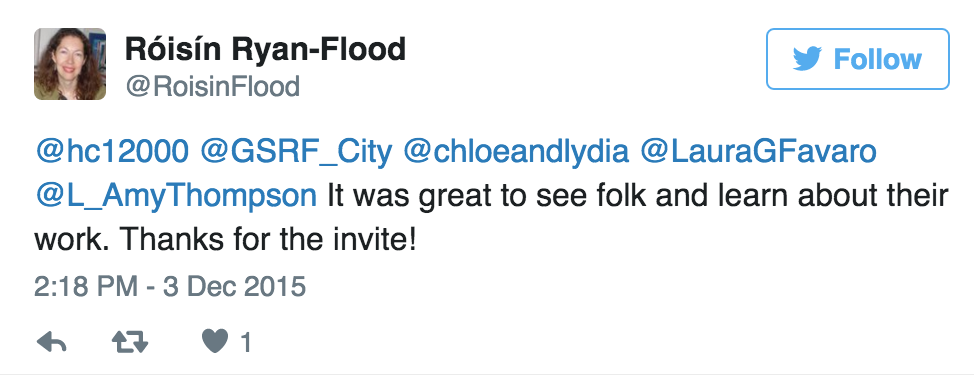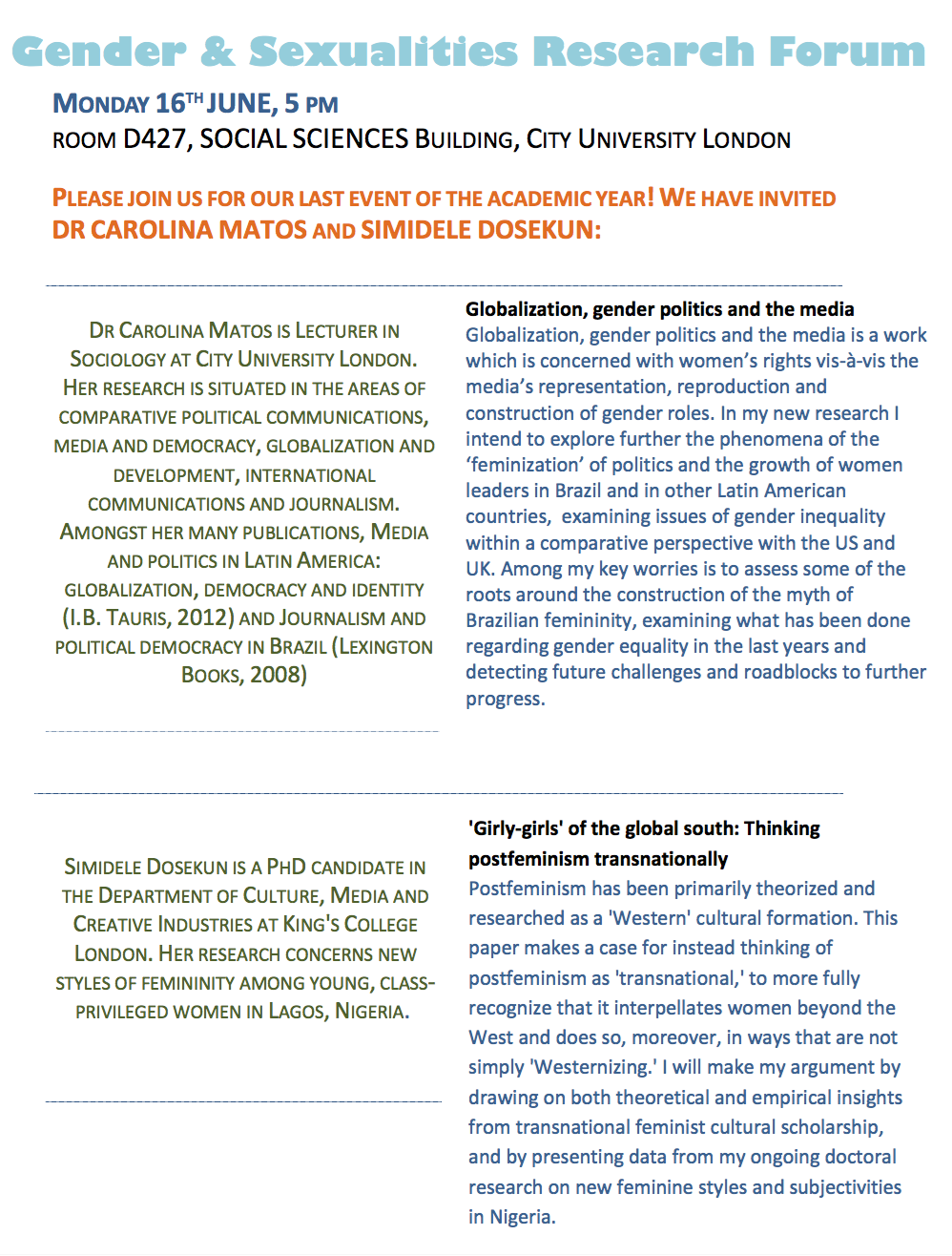Being and Doing: Gender and Race in the Academy
An afternoon workshop organised by the City University of London Department of Sociology’s Gender and Sexualities Research Forum (GSRF)
Supported by the British Sociological Association (BSA) Race & Ethnicity Study Group
PLEASE SIGN UP HERE
Tuesday 1 November 2016
4.15pm-6.30pm
Room DLG09 Rhind Building (City University of London) St John Street, London
Join us for this important workshop on female and BAME experiences of carrying out feminist and/or race and ethnicity research in the field of contemporary sociology and holding minority status(es) in an ever increasingly competitive, hierarchised environment.
We will be discussing issues of ‘being’ and ‘doing’ gender and race in the social sciences including negotiating and interpreting the insider / outside experience in the research field, and challenging racism, sexism and power and privilege in the academy.
This workshop will take place at City University London on November 1st 2016. It will be a space for PhDs, early career researchers and academics from across London and beyond to talk freely and safely about their experiences.
We will begin with a talk from Suki Ali, Associate Professor in the Department of Sociology at the London School of Economics followed by introductions from all participants. Representatives from City GSRF will convene the workshop portion. These will take the form of small group discussions on the themes of ‘doing’ gender and/or race, ‘being’ female and/or a racialised minority in the academy, and ‘change’ where we’ll in our groups form action points based on our thoughts during the discussions to feed out to the rest of the collective.
We sincerely look forward to having you with us.



